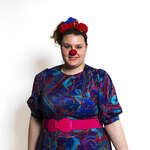#MeetTheArtist: Anamarija Jurišić Osmeričić
When you meet Anamarija Jurišić, you immediately sense the blend of playfulness and depth she brings to her work. With a background in acting and puppetry Anamarija has always been drawn to the power of the arts to in healthcare. Since joining RED NOSES Croatia in 2016—and later the Emergency Smile International team in 2021—she has travelled the world bringing joy and hope to people in crisis.
In this conversation, she shares how her clown has grown alongside her, why silence can sometimes speak louder than words, and what keeps her motivated to continue bringing smiles where they are needed most.
Can you tell us about your clown name and its origin?
My clown name is Pandolina. It’s a mix of my spirit animal, the panda, and my superpower, which is my voice. I combined ‘panda’ with ‘mandolino’ (a musical instrument) to create Pandolina.
I started clowning at 22 years old, full of boundless energy. As I’ve grown, my character has matured alongside me.
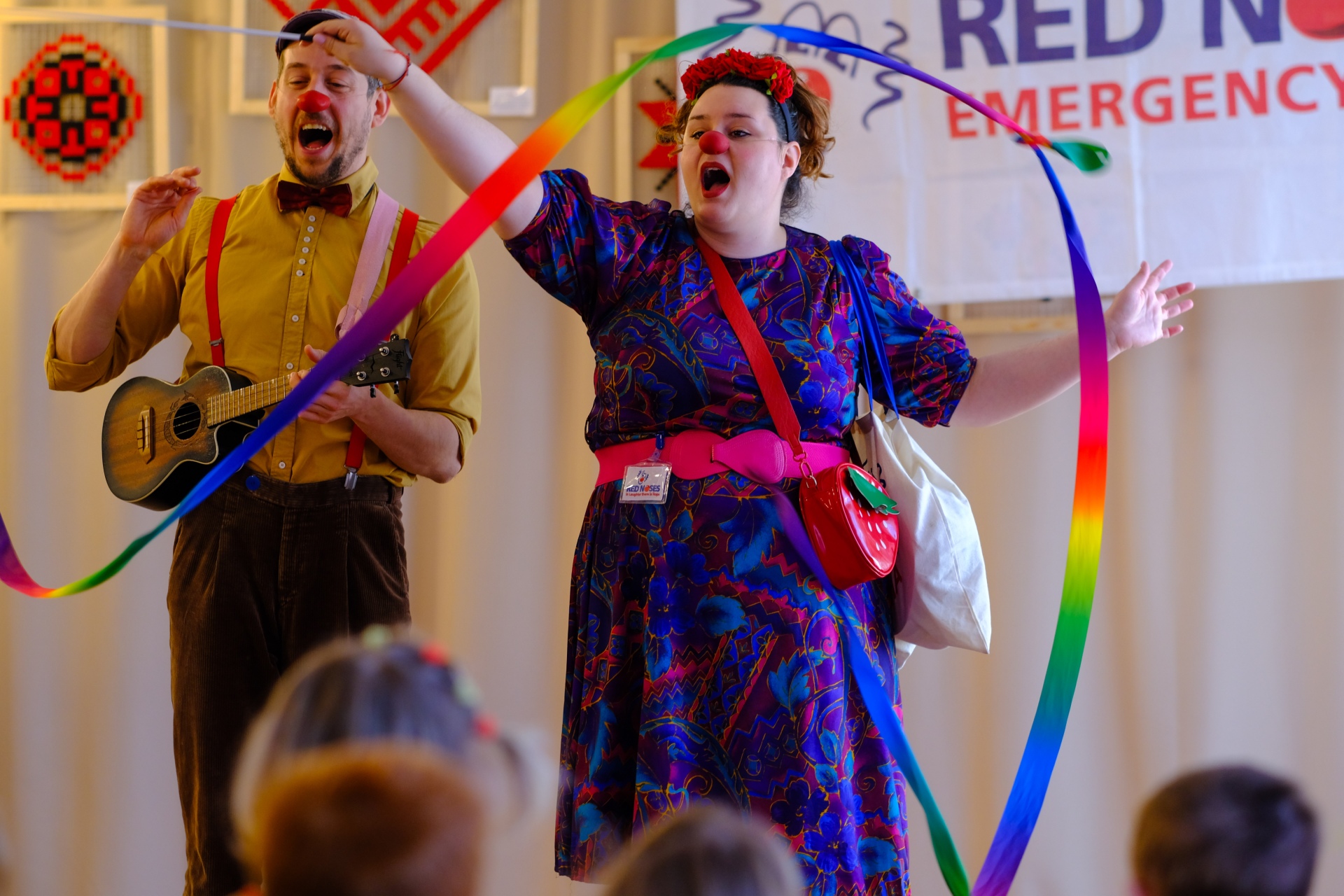 Enlarge photo
Enlarge photoCan you share an experience where you had to adapt your performance?
During a mission in Georgia, we unexpectedly performed in a large sports arena at a school with 100 displaced Ukrainian children. The environment was noisy, with lots of distractions like lights and phones. We started with a musical parade, but I realised my voice wouldn’t carry in that loud space. So, I stayed silent and raised my hands for what felt like a long time. By not making a sound, I made the loudest impact. Silence can be a powerful tool; knowing how to use your voice is a superpower.
How do you prepare for a mission?
Before each mission, we have a preparatory week where we work extensively.
Connecting with my team is 90% of my preparation. They’re the ones who support you during the mission, so it’s important to build a strong bond and understanding.
I’d also say that one of the most important things for me is having a clean costume. On Emergency Smile missions, it’s hard to find time to wash the costume every day. Sometimes we’re lucky with just having hot weather and sun, so things dry quickly. If not, I put the costume in the sun or bring extras.
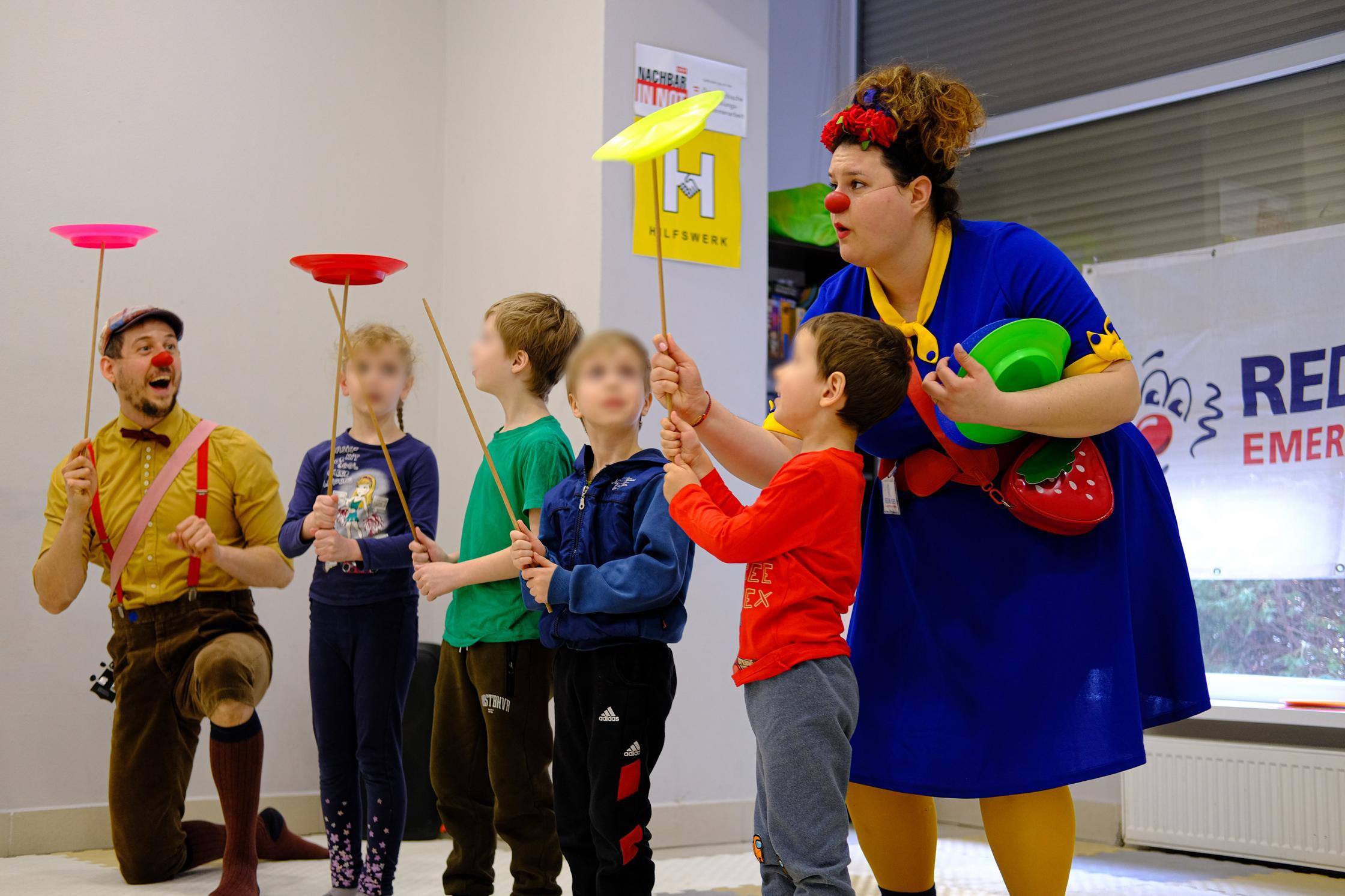 Enlarge photo
Enlarge photoHow has the Emergency Smile programme influenced you?
The Emergency Smile Programme has given me the strength to look at life differently. When I started, I was afraid of many things happening in the world and felt powerless. It’s just not possible to change it all. But by giving something to the community as an artist, that’s the drive I have inside me, and what keeps me motivated.
How does performing for different audiences affect you as an artist?
In a theatre, you perform, and the audience claps. But when you perform for people who have nothing to lose, whether it’s clapping or booing, you get honesty. That honesty drives me to be a better artist.
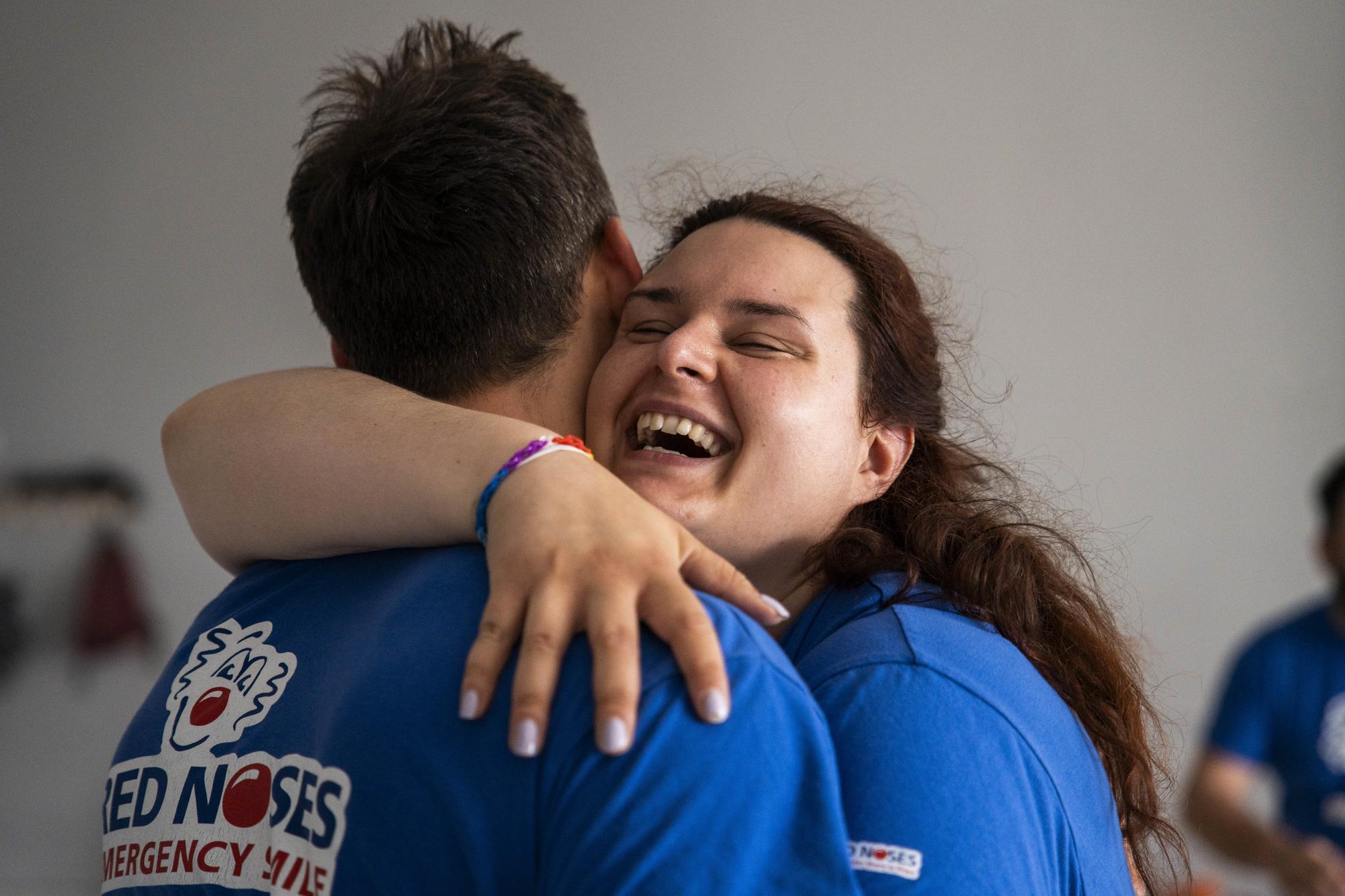 Enlarge photo
Enlarge photoDoes your clown character appear in your daily life?
Yes, some people now call me Panda! I love that my clown is truly me, and I’m not pretending to be someone else. Even if I have a difficult day or an injury, like with my knee, I don’t need to hide it—I can simply bring it into my play. Pandolina has taught me many things, but most of all to embrace and express who I truly am.
Why did you become a healthcare clown?
I was born with a heart disease and was often in and out of hospitals as a child. The doctors said I was a kind of miracle child and decided not to operate. So, in a way, my heart is both broken and perfect at the same time. I know how difficult a hospital can be for a child. Even a single hour there can feel like an eternity.
All the members of my family are doctors, except me. I’m not a medical doctor, but I still work in healthcare as a healthcare clown.
When I first heard about RED NOSES, I was at an academy, studying acting and puppetry. I went to an audition but was too young. It’s recommended to become a healthcare clown after the age of 23, so you have more experience and maturity. But that didn’t stop me, and at 22 and a half, I went back to the audition and got in!
I really wanted to give back to children like I was—a moment of hope and joy. Those five minutes of not being sick.
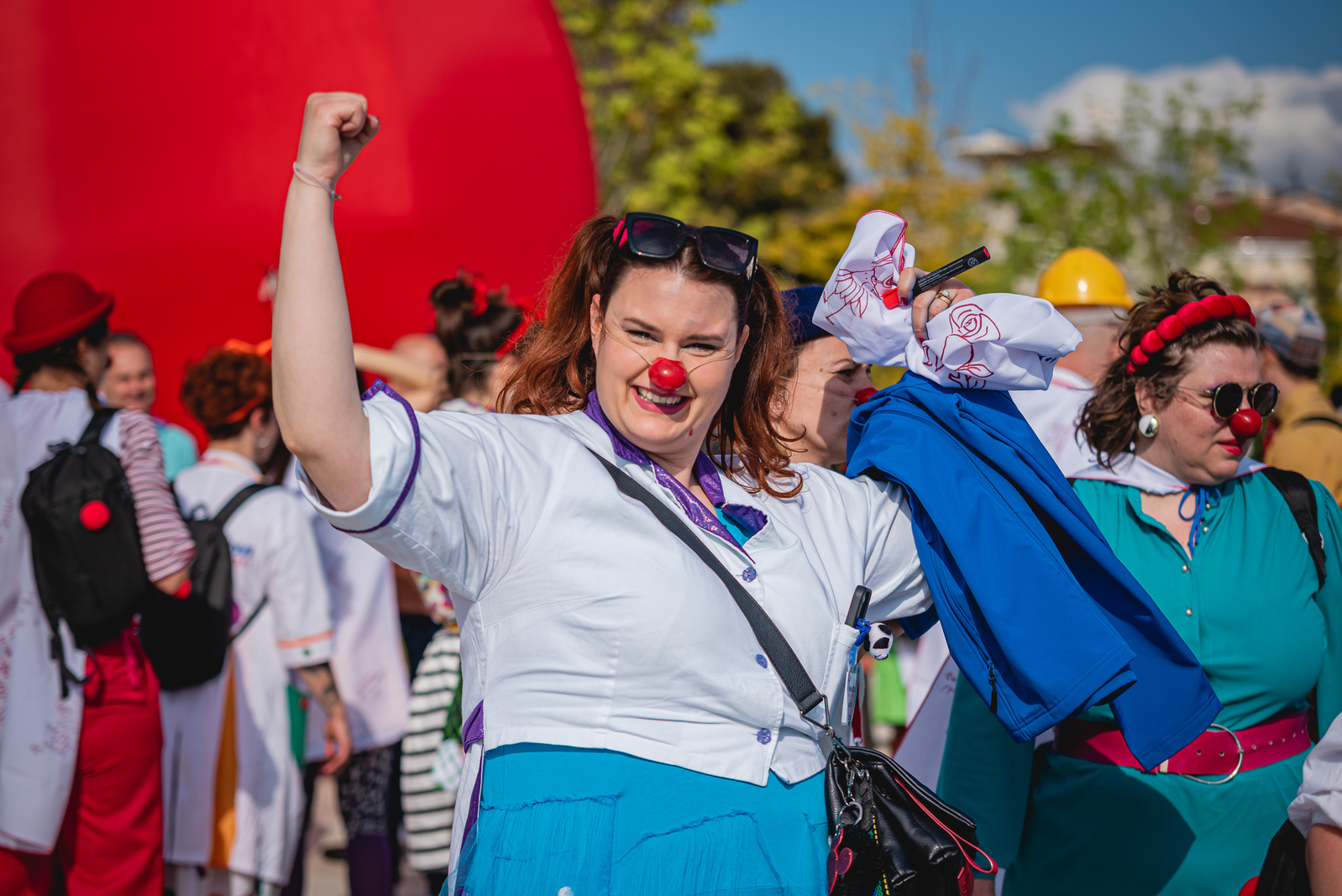 Enlarge photo
Enlarge photoWhat have you gained from your colleagues?
I now have so many colleagues who teach me so much. Not everyone is lucky to have that; it’s like a new family. You are supported by everyone, and in return, you can support someone else, which is very empowering.
What message do you want to share with the people you work with?
I want to share hope. I know it sounds cliché, but as clowns, we don’t just talk; we show. Clowns make mistakes all the time, but we embrace them. In every mistake lies the chance for a new opportunity—and that’s where hope lives.

